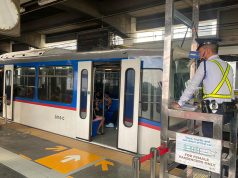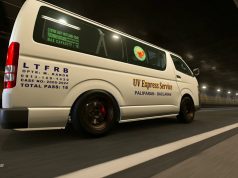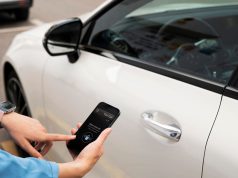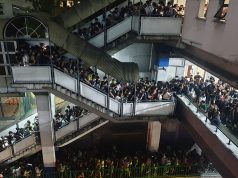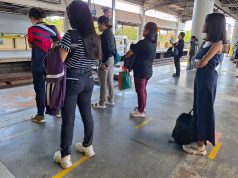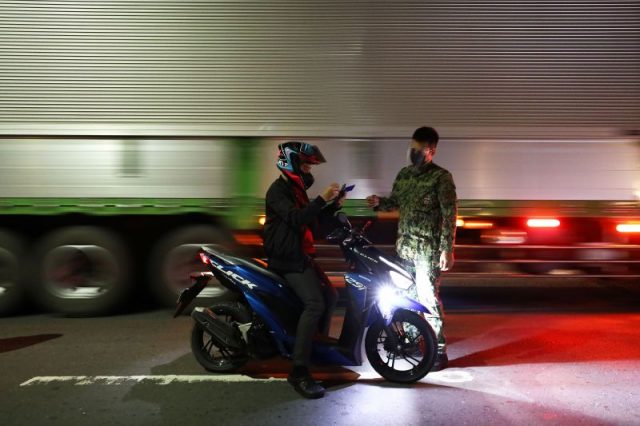
Private vehicles are considered one’s “safety bubble” in road travel as the coronavirus goes rampant, especially with the presence of the highly transmissible Delta variant.
But this might change as the Philippine National Police has banned those who are not “authorized persons outside their residence” or APOR to fetch essential and frontline workers during Metro Manila’s hard lockdown starting Friday, August 6.
PNP Chief Guillermo Eleazar previously said allowing non-essential workers to be on the road to take essential workers to and from their workplace is prone to “abuse.”
“Ngayon po, kung kayo ay workforce APOR e hindi ka pupuwede magpahatid kung hindi ka marunong mag-drive,” Eleazar was quoted as saying in DZMM Teleradyo.
“Ito po ‘yung pwedeng abusuhin e. Ano ba naman ‘yung magda-drive ka mag-isa sa sasakyan, hindi ka APOR, tapos sasabihin mo ‘Ay pasensya, ako po’y naghatid’ o kaya ‘Ako’y pupunta sa isang lugar susunduin ko po si doktora o kung sino man,'” he added.
Public transportation will continue to operate during ECQ, Eleazar pointed out, unlike before when it was totally suspended.
“Alam po natin na maaapektuhan ‘yung iba, kaya lang mas matindi po kasi ‘yung abuso na puwedeng mangyari kung hindi natin mako-kontrol ‘yan. Anyway, tuloy rin naman po ‘yung public transport. Ito rin po ang purpose niyan, na talagang malimit ‘yung lalabas,” he said.
The top cop appealed for the public’s understanding of the policy.
The Department of Transportation said that different public transportation modes will still be allowed to operate such as railways, jeepneys, taxis and buses, albeit at a limited capacity.
The PNP’s decision didn’t please some Filipinos who considered medical and economic frontliners’ welfare as a priority. After their shifts, which can be more than 12 hours for medical staff, some could be too tired to drive themselves home or take the public transportation.
“Ibang klaseng kahunghangan talaga ‘to. Paano ‘yung doctor na ihahatid. Pagod na nga sa trabaho, ‘pag drive-in niyo pa pauwi?” a Twitter user wondered.
Others pointed out that the policy would only further increase the workers’ risk of potential exposure to the virus during commute if they are not allowed to be fetched by non-APORs.
Some workers have shifted to private transportation during the pandemic to minimize contact with others in transit. Others use cars while there are those who ride a motorcycle or bicycle.
“Mas prone to virus spread ‘tong ginagawa nila eh. Ngayon, isisiksik mo sa public transpo ‘yung mga dating may private vehicles. Company shuttles? Sana all meron. At hindi naman point to point or door to door ‘yun, so mag-co-commute pa rin kami, ” a Twitter user said.
“Nakakahiya naman sa mga frontliners na walang kotse. Imbes na isolated silang masusundo pauwi sa mga bahay nila, ma-e-expose at makaka-expose pa nila ‘yung ibang commuters,” another online user said.
There were those who argued that checkpoints and border controls to be established should be able to detect the non-APORs.
“This is a very stupid idea. May checkpoint kayo to check na APOR lang nasa biyahe. Hatid-sundo is better to lessen interaction with total strangers which makes case tracing more difficult. Company shuttles allowed naman siguro? Saan pupunta ang tao eh curfew 8 p.m.,” a Twitter user wrote.
NCR will be placed under enhanced community quarantine from August 6 to 20 in a bid to reduce the transmission of COVID-19’s Delta variant.
Only those considered APORs are allowed to leave out their houses. According to Eleazar, these are the following:
- Health and emergency frontline services and uniformed personnel
- Government officials and employees on official travel
- Duly-authorized relief and humanitarian assistance sectors
- Persons traveling for medical or humanitarian reasons
- Persons going to and from the airport
- Anyone crossing zones for work in permitted industries
- Public utility vehicle operators
ALSO READ: August 2021 ECQ guidelines: What to expect as Metro Manila goes into lockdown





